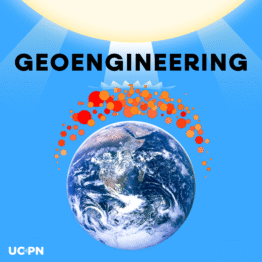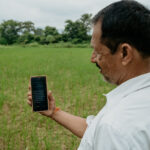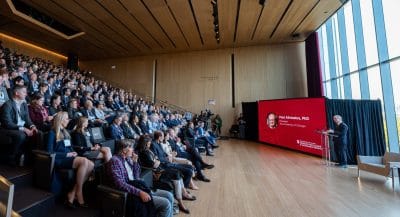Tiffany Shaw, professor in the Department of the Geophysical Sciences at the University of Chicago, has been appointed a Coordinating Lead Author for the Intergovernmental Panel on Climate Change’s (IPCC) Seventh Report (AR7). She will co-author a chapter on Large-scale changes in the climate system and their causes that will assess the scientific literature on how the Earth’s climate is changing and why.
The IPCC was established by the United Nations in 1988 and produces comprehensive assessments of climate change roughly every seven years. These reports draw on hundreds of scientists from around the world to assess the latest scientific literature and provide policymakers with the most accurate understanding of climate change and its impacts. The Sixth IPCC Assessment Report, AR6, was released in full in March 2023. AR7 is expected to be finalized in 2028.
“When I realized that this seventh assessment report would have a chapter specifically addressing large-scale changes in the climate system and their causes, that made me interested in contributing,” said Shaw, whose current research focuses on global warming signals and whether those signals match expectations derived from climate models. As a Coordinating Lead Author, Shaw will attend four lead author meetings with travel support from the Institute for Climate and Sustainable Growth.
“It’s a very important time in climate science, and I think the focus of our chapter will be especially important in articulating our scientific understanding,” Shaw said.
The process of building the report began with a scoping meeting held in Kuala Lumpur, Malaysia, in December 2024. Shaw joined a team of over 200 experts from over 70 countries to outline the structure of AR7. This included elements like what chapters are included, titles for those chapters, and bullet points to guide, but not over-prescribe the content.
“All of that was decided based on consensus. We didn’t vote. It’s the IPCC’s approach and one that I hadn’t seen in action before,” Shaw said. “It was very much about hearing one another out until people didn’t have anything else to say. It meant long days, but remarkably, it worked.”
Shaw’s expertise in large-scale climate changes and their causes motivated her involvement with the IPCC report, but it also represents a rare and unique opportunity.
“It was a decision for me: am I going to wait another seven years? Who knows if there’ll be another report in seven years,” Shaw said. “I’ll learn a lot from the process.”
By taking on this role, Shaw will help shape one of the most influential scientific documents of the decade. The report will guide how governments and organizations around the world understand the state of climate change and inform the actions they take in response.























